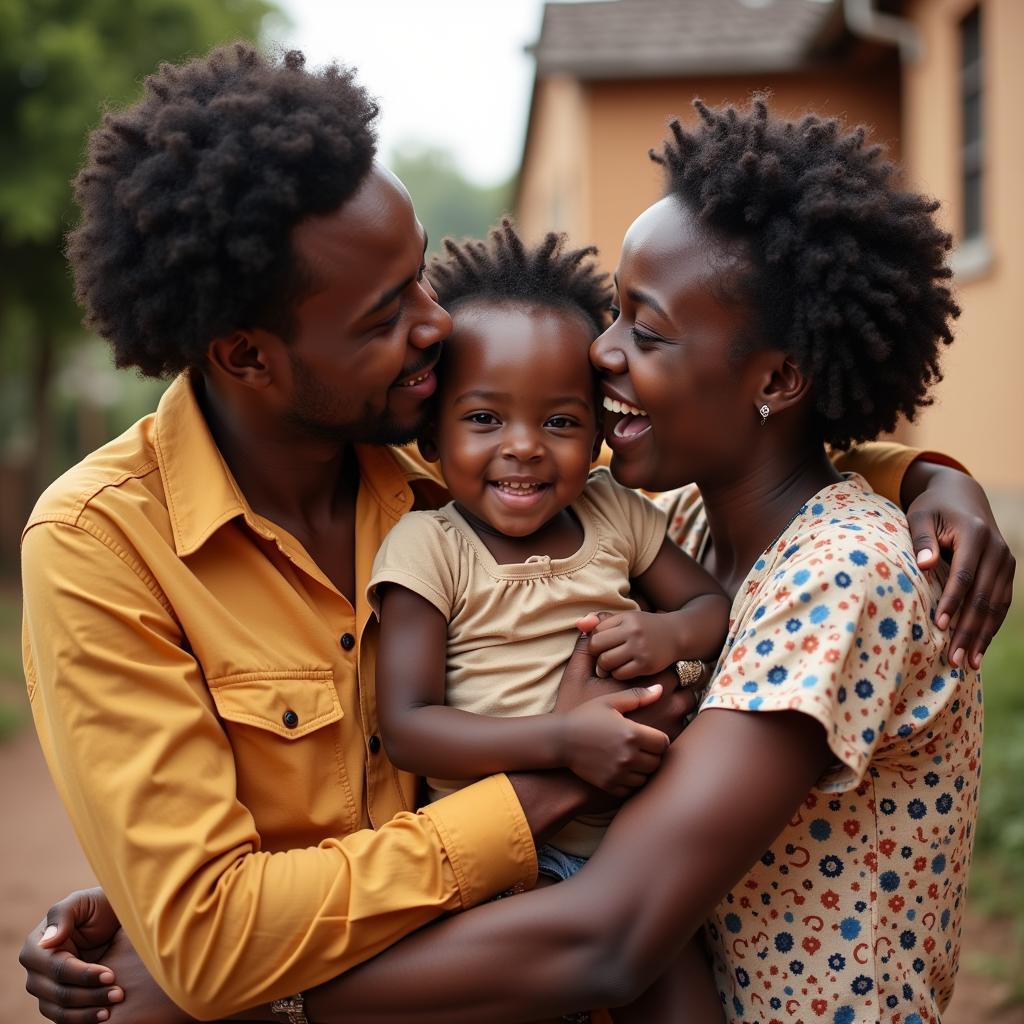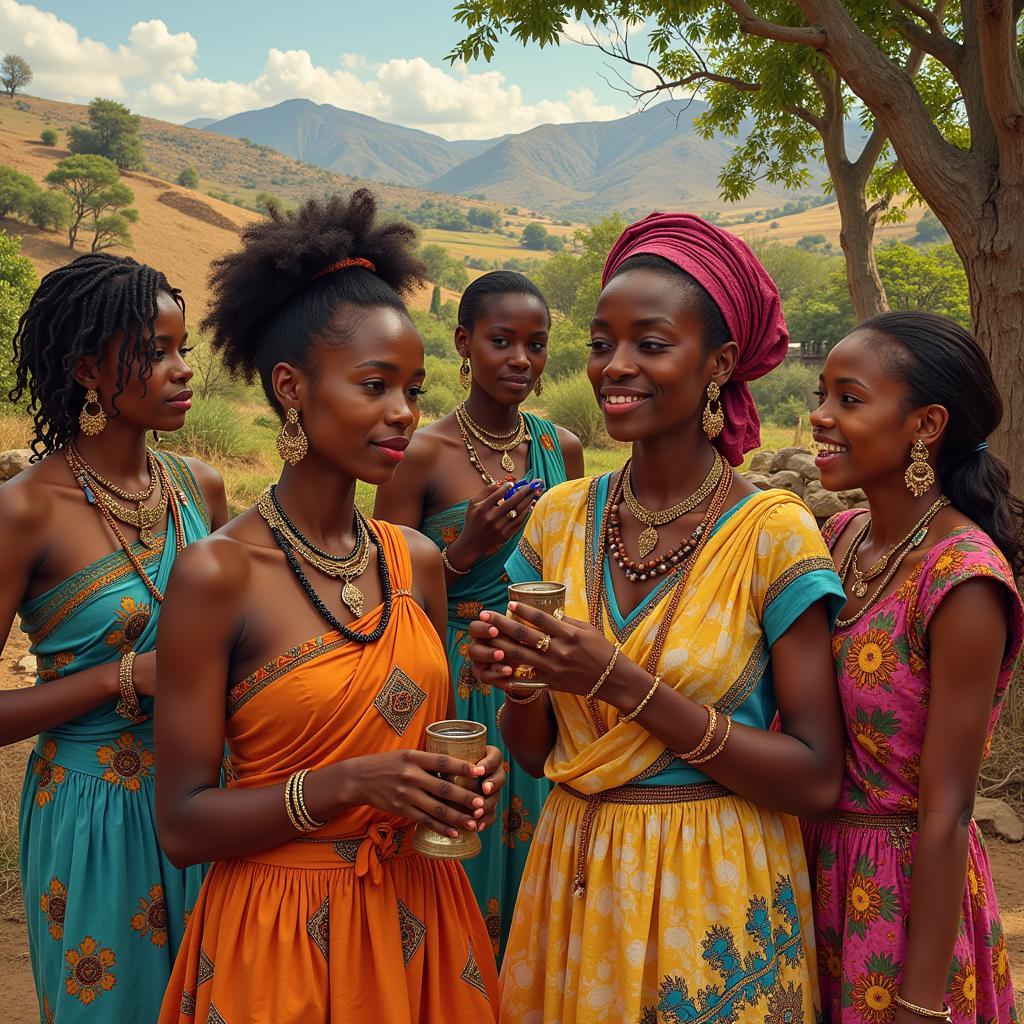African Countries That Allow Adoption: A Comprehensive Guide
Adopting a child is a significant life decision that comes with immense joy and responsibility. For those looking to open their homes and hearts to a child in need, Africa presents a unique set of opportunities. However, navigating the legal and cultural landscapes of international adoption can be complex. This guide sheds light on African Countries That Allow Adoption, providing valuable insights for prospective parents.
Understanding Adoption Laws in Africa
Adoption laws in Africa vary significantly, reflecting diverse cultural norms and legal systems. Some countries have well-established legal frameworks for both domestic and international adoption, while others rely on traditional practices or customary law. It’s crucial to understand that not all African countries permit international adoption, and those that do often have specific requirements and restrictions in place.
Factors Influencing Adoption Laws:
- Customary Law and Traditions: Many African societies have long-standing traditions of kinship care and informal adoption within extended families and communities. These customs often influence formal adoption laws, emphasizing the child’s best interests and prioritizing placements within their cultural context.
- The Hague Convention: The Hague Convention on Protection of Children and Co-operation in Respect of Intercountry Adoption is an international treaty that sets ethical and legal standards for international adoption. Some African countries are signatories to this convention, which aims to prevent child trafficking and ensure adoptions are in the child’s best interests.
- Religious Beliefs: Religious beliefs play a significant role in shaping adoption laws in Africa. For instance, some Islamic-majority countries have specific regulations regarding adoption, often emphasizing guardianship over full legal adoption.
Navigating the Adoption Process: Key Considerations
Embarking on an international adoption journey requires careful planning and thorough research. Prospective parents must meet the eligibility criteria of both their home country and the chosen African country.
Here are some crucial aspects to consider:
- Legal Requirements: Each country has specific legal requirements, including documentation, background checks, and home study assessments. Consulting with experienced adoption agencies and legal professionals specializing in international adoption is essential.
- Ethical Considerations: It’s vital to approach international adoption ethically, prioritizing the child’s well-being and best interests above all else. Working with reputable agencies committed to ethical practices and transparency is paramount.
- Cultural Sensitivity: Understanding and respecting the culture and traditions of the child’s country of origin is crucial. Prospective parents should be prepared to embrace the child’s heritage and provide a nurturing environment that honors their cultural identity.
 Celebrating Adoption in an African Family
Celebrating Adoption in an African Family
Spotlight on Specific Countries
While this is not an exhaustive list, here’s a glimpse into some African countries that allow adoption:
- Ethiopia: Known for its long history of international adoption, Ethiopia has a well-established legal framework. However, the process can be lengthy and complex, with specific requirements for prospective parents.
- Ghana: With a growing number of children in need of homes, Ghana has become an emerging destination for international adoption. The country has regulations in place to safeguard the rights and well-being of children involved in the adoption process.
- South Africa: As one of the more developed nations in Africa, South Africa has a comprehensive legal system governing adoption. The country is a signatory to The Hague Convention, providing an additional layer of protection for children.
It’s crucial to note that adoption laws and regulations are subject to change. Therefore, keeping abreast of the latest developments and seeking up-to-date information from relevant authorities is essential.
The Importance of Support and Guidance
Navigating the complexities of international adoption can be daunting. Connecting with support networks, adoption agencies specializing in African adoptions, and families who have gone through similar experiences can provide invaluable support and guidance throughout the journey.
 Finding Support in the Adoption Journey
Finding Support in the Adoption Journey
Conclusion
Adopting a child from Africa can be a profoundly rewarding experience, offering a loving home to a child in need. However, it’s crucial to approach this journey with sensitivity, respect for the child’s cultural heritage, and a commitment to ethical practices. By understanding the legal frameworks, cultural nuances, and seeking expert guidance, prospective parents can navigate the process successfully and provide a bright future for a child deserving of love and care.
FAQ
1. What is the average cost of adopting a child from Africa?
The cost of international adoption from Africa varies greatly depending on the country, the adoption agency, and associated expenses. On average, it can range from $20,000 to $50,000.
2. How long does the adoption process typically take?
The timeframe for international adoption from Africa can vary significantly, often taking several months to a few years. Factors such as legal procedures, document processing, and travel logistics can influence the duration.
3. Are there age restrictions for adopting a child from Africa?
Age requirements for prospective parents vary depending on the specific African country’s adoption laws. Some countries may have minimum and maximum age limits for adoptive parents.
4. Can single individuals or same-sex couples adopt from Africa?
Adoption eligibility for single individuals and same-sex couples depends on the laws of both the prospective parent’s home country and the chosen African country. Some countries may have restrictions based on marital status or sexual orientation.
5. What kind of post-adoption support is available?
Many adoption agencies offer post-adoption support services, including resources for families, cultural integration guidance, and access to professionals specializing in adoption-related issues.
Need Help?
For more information about investing in the African stock market or other inquiries, you can reach us at the following:
Phone Number: +255768904061
Email: kaka.mag@gmail.com
Address: Mbarali DC Mawindi, Kangaga, Tanzania
We have a dedicated customer support team available 24/7 to assist you.

